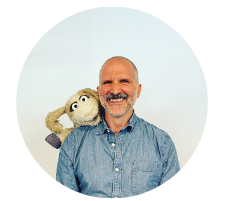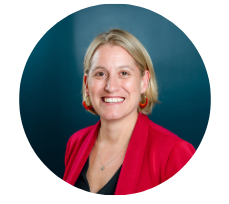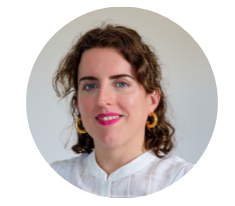Embracing innovation and partnership – and reshaping how we think about risk-enabled new, unconventional solutions to meet the needs of children and families in nearly impossible contexts. Ahlan Simsim’s funders were careful to ensure that the size and prominence of the grants did not restrict creativity or experimentation. Instead, they encouraged it, at the same time that the COVID-19 pandemic and other emerging crises demanded it.
The resulting initiative, Ahlan Simsim – or ‘welcome Sesame’ in Arabic – is now the single largest early childhood intervention in the history of humanitarian response. Integrating educational media with direct services for families, Ahlan Simsim provides transformational early childhood development and playful learning that is now part of daily life for millions of children in the Middle East.
Moderated by Shafi Musaddique, News Editor of Alliance magazine, the speakers were:
- Joe Elias, Senior Director for Program Management – International Programs, Sesame Workshop
- Kristen Molyneaux, Vice President of Program Strategy and Learning, Lever for Change (nonprofit affiliate of the John D. and Catherine T. MacArthur Foundation)
- Marianne Stone, Regional Project Director – Ahlan Simsim, International Rescue Committee
A few highlights from the event:
 Joe: We really believe that flexibility and longer funding runways allow us the space and the time to experiment with what works, and what doesn’t work, so we can course correct and evolve to have the greatest impact. When we heard that the MacArthur Foundation’s first ever 100&Change competition would provide $100 million to our project that would make measurable progress in solving a critical problem of our time, we just knew we had to go for it. 1900 applicants and 18 months later, we were the last one standing – combining the proven impact of Sesame’s educational media with the International Rescue Committee’s expertise in communities.
Joe: We really believe that flexibility and longer funding runways allow us the space and the time to experiment with what works, and what doesn’t work, so we can course correct and evolve to have the greatest impact. When we heard that the MacArthur Foundation’s first ever 100&Change competition would provide $100 million to our project that would make measurable progress in solving a critical problem of our time, we just knew we had to go for it. 1900 applicants and 18 months later, we were the last one standing – combining the proven impact of Sesame’s educational media with the International Rescue Committee’s expertise in communities.
There are several things that an investment of this scale allowed us to do:
- Because of the size, it got so much attention, which raised awareness – and opportunity
- To plan over five years, and be much more ambitious
- To dream bigger, and invest money in research
 Kristen: What started out as a vision to create four seasons of children’s television content to reach 6-9 million children and provide direct services to 1 million children has now transformed into nine total seasons of the Ahlan Simsim series reaching over 27 million children across the Middle East and North Africa, and reaching over 3 million children and caregivers in Syria, Jordan, Lebanon and Iraq, far exceeding the goals of the initial investment plan that MacArthur invested in.
Kristen: What started out as a vision to create four seasons of children’s television content to reach 6-9 million children and provide direct services to 1 million children has now transformed into nine total seasons of the Ahlan Simsim series reaching over 27 million children across the Middle East and North Africa, and reaching over 3 million children and caregivers in Syria, Jordan, Lebanon and Iraq, far exceeding the goals of the initial investment plan that MacArthur invested in.
This was well beyond what was anticipated in awarding this grant, but while these successes were built partially on the initial plan that Sesame and IRC put forward, they were also built out of innovation, adaptations and a collaborative spirit across the entire project.
How can donors specifically help encourage innovation and collaboration? There are three critical items:
- Trust – trust-based philanthropy is a topic of conversation right now and can take a lot of different forms. But one version is that the solutions should be driven by the organisations that are closest to the work, and funders should trust those organisations to execute based on their knowledge and expertise
- Time – short grant cycles tend to keep organisations focused on the next set of fundraising that they need to do, the materials that they need to create in order to secure the next grant in order to keep their programs alive.
- Adapting and pivoting with their organisations – we encourage a learning posture; we know that programs are going to run into challenges and new opportunities are going to surface while organisations are executing the plans that they may have put together 1 or 2 years before. Look for ways to understand, to succeed – what are the learnings that we didn’t anticipate, but have ramifications for the larger field?
 Marianne: Crises are not going anywhere, and we know that they’re evolving every day – whether it’s a crisis like what’s going on in Palestine, or climate change, we know that we need to be ready to adapt. For us, I think, our central pillar that we’ve thought about every day for the past six years is that childhood is everything, and children have always been at the centre of all of our decisions…
Marianne: Crises are not going anywhere, and we know that they’re evolving every day – whether it’s a crisis like what’s going on in Palestine, or climate change, we know that we need to be ready to adapt. For us, I think, our central pillar that we’ve thought about every day for the past six years is that childhood is everything, and children have always been at the centre of all of our decisions…
Covid… was a real inflection point for us as a project. Unexpected, global, all children in the Middle East were experiencing out-of-school learning loss and we really had to step back and ask ourselves: “This is what we had planned and we’re no longer going to be able to do this for the foreseeable future, so how can we make sure that we’re still making meaning for children and caregivers in MENA?” The flexibility, the trust that we had was the foundation of our ability to make these decisions and changes.
You can watch the full video here:
Amy McGoldrick is the Head of Marketing, Advertising and Events at Alliance magazine




Comments (0)